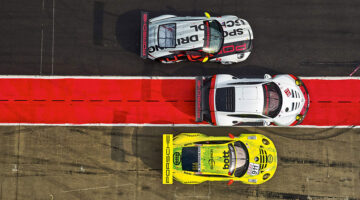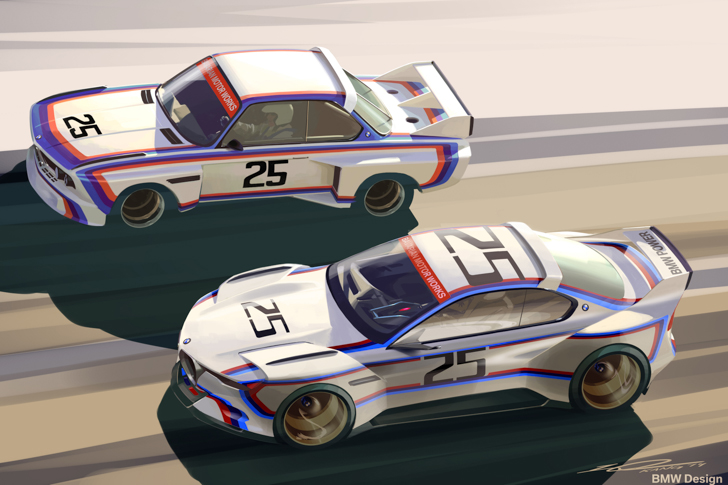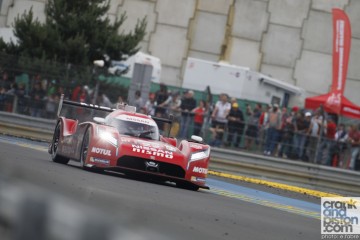crankandpiston speaks with Head of Porsche GT3 Challenge Cup Middle East Walter Lechner to discuss the series’ five seasons of competition, stability required for motorsport in the region, and why being the first one-make series to run the new 991 GT3 car was a big honour.
[Not a valid template]Few would deny that supporting the 2014 Formula 1 Bahrain Grand Prix was a fitting way for the Porsche GT3 Challenge Cup Middle East to celebrate the end of its fifth season. Since its inauguration in 2009, the series has completed more than 60 races, seen close to 100 drivers from across the GCC and Europe take the green flag, and crowned four different champions from four different GCC nations during its five-year tenure: apt too that reigning champion Zaid Ashkanani took the top step for the support race, flanked by local boy Mohammed Mattar for Team Bahrain.
At a time when Middle Eastern motorsport is struggling to fight its way out of a decline, the Porsche GT3 Challenge Cup Middle East has been flying the flag without surcease, fast establishing itself as the strongest – and arguably most popular – series in the region. For Head of the Porsche GT3 Cup Challenge Middle East Walter Lechner though, it’s no big surprise. With 21 years of racing experience to fall back on, it’s ‘simply’ the result of hard work and commitment.
“It’s a very difficult region to start anything really, except Formula 1,” Walter begins. “We came here for the first time in 2005 when we were the support race for that year’s Bahrain GP. Afterwards we were approached by people like Fahad Algosaibi and Abdulaziz Turki Al Faisal – both of whom are still connected to the series – to do more than just uncontrolled racing. At that time I was running a Supercup team, but when interest started building, Porsche asked if I could help setup a Challenge Cup in the region. It’s been a long process but five years on we’ve reached a peak which, for this region, is sensational.”

It’s been far from an easy gestation period though for Porsche GT3 Challenge Cup Middle East. Its first official season came about just one year after the world economic crisis of 2008, the after-effects of which were still being felt, causing purse strings to be tightened considerably and motorsport funding to be cut back to scraps. The political unrest of the Bahraini Uprising in 2011 – the effects of which caused the cancellation of that’s year’s Grand Prix – proved of similar concern, the potential cancellation of a third of the season’s races a PR nightmare in the making. Through the stormy waters though, Walter, Lechner Racing and Porsche GT3 CCME have not only survived but also flourished.
“There’s no big secret. First of all you have to work hard. Secondly you have to get people to trust you,” Walter continues. “It took a long time from 2005 until we actually started in 2009. That year we had 11 cars, but then we had 11 cars at the end of the season. We didn’t do artificial grids with guest drivers to push the numbers either, and this was the right thing to do. We proved that we had stability and consistency. That’s very important. If you want to bring in new teams, they want to know, what they’re investing in and whether their money will be protected.
“Yeah, if you want to be a respected partner, you have to pay your bills on-time. That makes negotiations easier the following year.”

Such growth has been difficult to ignore. At its first official race at the Dubai Autodrome in 2009, the Porsche GT3 Challenge Cup Middle East series boasted just 11 cars. At the final round in Bahrain in March this year there was 20, just as there had been five months earlier at the season opener (again in Bahrain). Though 24 cars seems ‘about right’, Walter is sure ever-increasing interest from new teams and drivers is not about to lose momentum. Qatar in particular – especially given the six-race Silver Category winning streak by former Dakar Rally winner and nine-time FIA Middle East Rally Champion Nasser Al-Attiyah earlier this year– has been touted as a potential new team ‘brand’, alongside The Saudi Falcons, Team Bahrain and SkyDive Dubai Falcons.
“It’s not critical, but Qatar owns 10 per cent of Porsche and 17 per cent of the Volkswagen Group. So it makes sense, doesn’t it?
“Formula 1 has private teams, and the private teams make F1 work. Remember when Honda pulled out? Then Toyota and BMW? Where would Formula 1 be today without independent teams? That’s why we have three categories: Gold, Silver and Bronze. That means we can attract gentlemen drivers (who come just for the fun of competing), businessmen who are also good racers, and then the top guys in the Gold category. That’s a lot of potential support.”

Amidst official backing from Porsche, as well as the circuits themselves (“everyone is very supportive”), Walter cites enthusiasm from the drivers as another irreplaceable reason for the series’ success. Abdulaziz Turki Al Faisal, the series only two-time champion thanks to victories in ’09-’10 and ‘12’-13, is a notable example.
“There is no doubt that Abdulaziz is a huge asset. He’s one of the greatest ambassadors you can have. He supports us, has a family background that is very respected and he has always been a great ambassador for us. That helps a lot.
“And it’s not just the long-term drivers. Salman Bin Rashid came back for the Dubai round and stayed in for the remainder of the season. There’s Faisal Binladen too, we’re especially proud to have Christina Nielsen in the series, and there’s great businessmen in the championship like Algosaibi. It’s a great mix of people.”

As has proven the case with most regional motorsports though, fan and media support proves more difficult to come by. And while the introduction of the new Porsche 991 GT3 car helped bolster interest from the petrolheads and Porsche nuts alike (the Middle East Challenge was the first international Porsche one0-make series to run the car competitively), Walter hopes that changes in place to bring media back to the series will aid further development.
“It’s a big, big compliment from Porsche motorsport to let us be the first people in the world to let us use that car,” Walter explains. “Normally, these cars are only introduced to series that are run by Porsche itself – every Cup is run by Porsche and the Challenges are run by licence holders – but because we are in the Supercup and they know that technically we are one of the best operations worldwide anyway, Porsche knows we can solve problems ourselves.
“And it’s not just Porsche. The media in the Middle East is fantastic. We’ve got a lot of magazines, daily newspapers, and although we do still miss track spectators, we are working on that. We’re always looking for more TV coverage. You can see the Asia championship in Thailand for instance, so why should you not be able to see our championship in Thailand? Similar cars, good racing, there’s a Red Bull car in it too. So that’s what we have to work on and hopefully we will get that under control.”

Although still half a year away at least, preparations are well underway for season six. And while it’s unlike Walter Lechner to look backwards rather than forwards, it’s tempting to ask which – from the 60-plus GT3 Challenge Cup Middle East races he has officiated – hold special memories for him.
“The first one. I had to convince Porsche Middle East that we were the right partner. The contract was signed between all parties but the then general manager was not convinced. But when he saw the first weekend, he was very pleased. He saw that we were working hard, and from that moment on he supported us. And the 50th race, basically because if we can have one driver, Abdulazziz Turki Al Faisal, to compete in all 50 races, and some staff have all done 50 races means a lot. To have 20 cars, which was the biggest grid in the space of five years, that impressed me a lot.
“There’s no doubt there will be a season six for Porsche GT3 Challenge Cup Middle East. And I’ve no doubt we’ll keep getting stronger.”
*Walter Lechner was speaking with James Gent at the Dubai Autodrome



